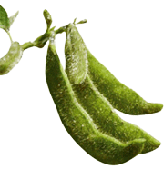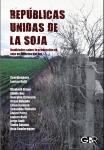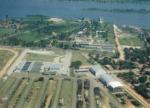Languages
Search
Land conflicts
- Land conflicts in Paraguay
- Police protection for agrarian reform officials
- Tractorazo: Soy producers stage protest against change
- Via Campesina International Day of Farmers' Struggle
- Updates from Paraguay
- Refugees of the Agro-export model
- Evictions and violence in Northern Argentina
- Syngenta evict Family Farmers in Brazil
- United Soy Republics (book)
- Violent and illegal eviction of guaraní community in Northern Argentina
Agrochemicals
- Campesino families block fumigation of soy fields
- Dutch Parliament against RRII soy
- El Glifosato no es inocente
- Pobladores de San Pedro contra el avance sojero
- Paraguay, niños vs. agrotóxicos
- Roundup resistant weeds spreading in Argentina (2007)
- El costo sanitario de los agronegocios
- Argentina: Stop fumigation!
- Paraguay Sojero: soy expansion in Paraguay
- Campesino leader charged for confronting crop spraying
- Dirigente campesino imputado por hacer frente a la fumigación
- Argentina: A case study on the impact of genetically engineered soy
- Kleinbauernsprecher Tomas Zahyas bedroht und kriminalisiert
- Paraguay: Silvino Talavera
- Peasant family in Paraguay condemned by agrotoxins
- Victory at a high price
- Visit to Paraguayan embassy
- Roundup exposure may affect human reproduction
- Paraguayan's Health Minister commits herself to act against the poisoning of campesinos
(Ir)Responsible Soy
- "Responsible" soy process should be abandoned; International letter
- 'Responsible Soy' in Paraguay
- Against the 'Responsible' GM soy of Solidaridad and WWF
- Dutch Parliament: critical debate Round Table on Responsible Soy
- Round Table set to certify damaging soy (report)
- Take action against 'responsible' GM toxic soy
- The 'Round Table on (ir)Responsible Soy': an overview of critisisms
- WWF Panda dances for Monsanto: Action against 'responsible soy'
- Brazilian Greenwash promotion in Wageningen, october 2007
- Greenwashing the soy industry: background booklet
- Greenwash! by WWF and FSC on palm-oil and soy certificates.
- GM soy and common sense do not go together!
- Mesa Redonda empeñada en certificar el cultivo irresponsable de soja (informe)
- ¡La soja GM y el sentido común no van de la mano!
Agrofuels
- International Biofuels Conference (17-21 November) in Sao Paulo
- New article: Brazil Agrofuel Push
- Worst EU Lobby Awards 2008: Agrofuel candidate
- The global fight against Cargill
- Agrofuels: a new threat
- Paving the way for agrofuels
- Production of raw materials for future biofuel processing plants in Entre Rios
- Agrofuel scandales unraveled
- Call for sign up morarorium
- Opposition to Al Gore's visit in Buenos Aires
- Agrofuels: Towards a reality check in nine key areas
- Monbiot: An agricultural crime against humanity
- Vote for Repsol as 'Worst EU lobby' 2007





